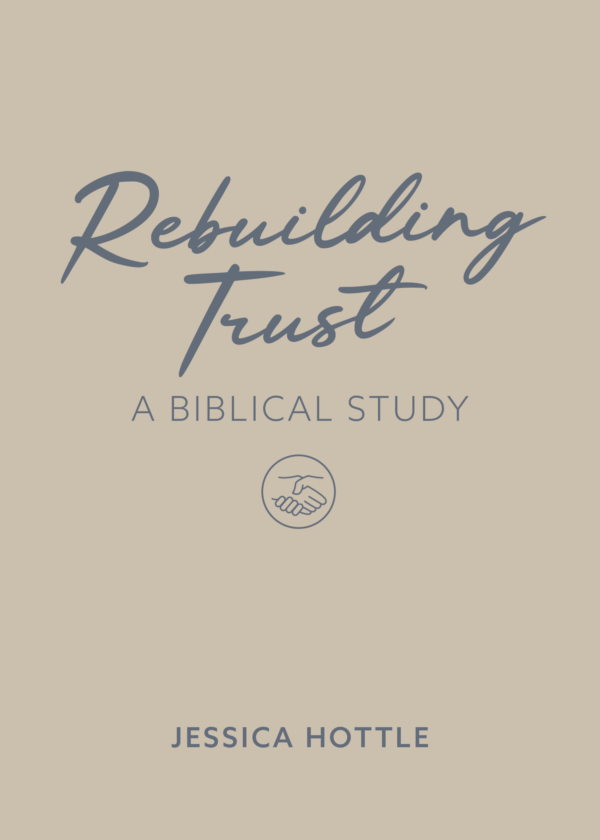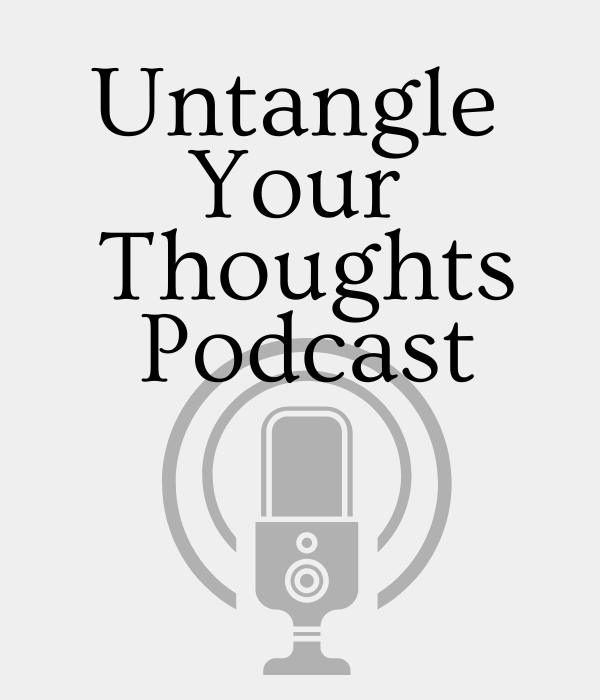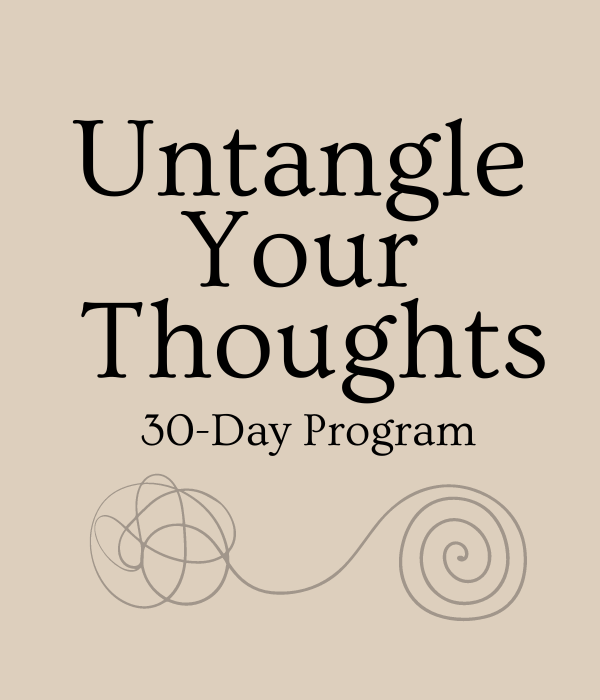Building trust and fostering relationships over time is a significant investment. It can be disheartening when a single moment threatens to undo all that effort. Rebuilding broken trust is a process that takes time and a committed effort to restore.
Drawing from his own experiences of betrayal, David, in Psalm 41:9, understood the pain of being let down by those close to him. Despite the hurt, he chose not to become bitter or view everyone as untrustworthy. Instead, he embraced a fundamental truth: people, being sinful, will fail us, but unwavering trust can always be placed in God.
Solomon, David’s son, expanded on this wisdom, emphasizing the superiority of trusting in God over relying on our own understanding (Proverbs 3:5–6).
In moments of betrayal, it’s tempting to swear off relationships, build walls, and say never again. The inclination is to avoid learning how to rebuild broken trust. However, it’s crucial to recognize that while others may fail us, and we ourselves aren’t always trustworthy, varying degrees of trust are necessary for genuine relationships. Without trust, true connection is impossible.
David’s story illustrates this beautifully. Despite having opportunities to retaliate against Saul, who pursued him relentlessly, David chose honor over revenge. In honoring Saul, he was ultimately honoring God, even in the face of betrayal.
Our ability to trust others stems from our unwavering trust in God. Knowing that God will never fail us provides the foundation for trusting others. Our ultimate security lies in Him, giving us the freedom to trust others and experience the joy it brings. Trust is closely intertwined with love, and true intimacy is built on honesty and trust. It takes trust to bear each other’s burdens (Galatians 6:2) and to “spur one another on toward love and good deeds” (Hebrews 10:24).
By the way, what if I told you your feelings aren’t inherently bad or sinful? You don’t need to fear or suppress them. They can be a guide. If you’re interested, I have a free 3-day study on living by faith while processing emotions. Check it out here!
What Happens When Trust is Broken in a Relationship
Moments where we begin to coil back like a snail back into its shell, wanting to hide from the potential danger outside.
Slowly, we stop sharing our feelings.
We slowly stop wanting to communicate because we may wonder what’s the point.
Slowly, we think, “When did I stop mattering to this person?”
Trust is broken in many ways between friends, family, spouses, and children. Each requires different levels of restoration and willingness between both parties. (I am thankful that God is always with us, walking us through how to continue to keep our love on for people despite the hurt we feel.)
Psalm 147:3 says, “He heals the brokenhearted and bandages their wounds.”
When I am healing from broken trust with a friend after hearing what they were saying about me, I have to recognize, pray, and discern between ending the friendship for both of us to be healthy moving forward or if establishing new boundaries will help repair our friendship moving forward.
When a family member continues to show me I can’t trust them with my pain, hurt, or feelings, I have to recognize where they are and know that boundaries will be important moving forward, and maybe a certain degree of reconciliation can happen.
*Is anger controlling you right now? Wondering what steps can you take to break free and find peace? Get my biblical study on anger.
Biblical Study on Rebuilding Trust eBook
$5 Have you found yourself struggling with a breakdown in trust, caught between the desire to rebuild the relationship but unsure where to begin restoration? This study offers practical steps grounded in biblical principles and reassurance in God’s enduring love through broken trust. Explore insights from scripture that navigate the complexities of rebuilding trust from…
How Do You Start to Rebuild Trust in a Relationship
First, I think it’s important that we separate forgiveness and trust. A lot of times, when our trust is broken, we need to choose to forgive because that’s going to get our hearts cleaned up and uncluttered. But forgiveness does not rebuild trust at all. Forgiveness opens the door for people to trust again, but in and of itself, it doesn’t rebuild trust. I think this is important because oftentimes, people are hesitant to forgive because they’re thinking, “I don’t want to forgive because I can’t trust them.”
Second, there is a formula for rebuilding broken trust, and that, for me, is consistently changed behavior over time. When we break someone’s trust, it’s like we have a bucket of trust, and that trust bucket gets dumped. But we can’t just say, “I’m so sorry,” and expect the bucket to refill.
If you welcome forgiveness, you have the opportunity to rebuild broken trust. It takes very little time to dump the bucket and break trust; it takes a lot more time to fill the bucket up and rebuild trust. But the more we are consistent in what we say we will do, the more we will fill that bucket back up, and the trust begins to be restored.
Rebuild broken trust in relationships starts with three things:
- Forgiveness
- Reconciliation
- Repentance
The first step to repairing any relationship hurt is forgiveness.
Forgiveness is always given because Christ forgave us.
Yet, trust is earned.
As you are repairing broken trust, it’s important for both parties to discuss reconciliation. Do you both want to restore this relationship?
Remember that forgiveness is between you and God. Forgiveness takes one person, and that’s you. However, reconciliation takes two people. You and the other person involved.
God reconciled Himself to us through His Son Jesus. We become reconciled to God through our choice and Jesus dying on the cross. We choose to be reconciled with God by accepting Jesus as our Savior. Jesus reconciled me to God, but it’s my choice to choose Jesus.
2 Corinthians 7:10-11 says, “For the kind of sorrow God wants us to experience leads us away from sin and results in salvation. There’s no regret for that kind of sorrow. But worldly sorrow, which lacks repentance, results in spiritual death.
Just see what this godly sorrow produced in you! Such earnestness, such concern to clear yourselves, such indignation, such alarm, such longing to see me, such zeal, and such a readiness to punish wrong. You showed that you have done everything necessary to make things right.”
Our sorrow leads us to repentance. Whether we did the hurting or were hurt, we can still repent of our actions to the Lord, going to Him humbly recognizing our own faults. We can not repent on someone else’s behalf; our repentance doesn’t excuse our behavior. Our repentance keeps our hearts humble before the Lord that we should ever act on our pain.
Rebuilding trust is a gradual process that involves consistent actions and genuine efforts to mend broken connections.
Sometimes anger can linger and this is something we will also have to process through.
How to Rebuild Trust in a Relationship
Rebuilding broken trust in relationships with biblical action requires us to move in these five things:
- Admit and repent
- Practice forgiveness (the act of walking it out through our actions and words)
- Trust in God.
- Recognize and encourage what builds trust.
- Repetition of consistent action matching our words.
Action means motion. We are moving in a direction that leads to healing. When we forgive someone, that’s the start of us walking out the healing in our hearts. Moving forward, our words and actions align with the forgiveness process leading to reconciliation. (If that is what is talked agreed upon. Even if you are not establishing reconciliation, we still begin the process of walking the hurt with the Lord.)
Trusting in God will be the foundation of our healing. We can trust God with our pain and restoration because He is a redeemer.
It’s really important that we understand that forgiveness is a decision; it isn’t a feeling. If we wait until we feel like forgiving, we are going to wait for the rest of our lives. Mainly because we will not feel like it. It will have to be a decision. We are choosing to let that hurt go from tangling our hearts up.
It’s not that we are forgiving or forgetting it. We are not forgetting it. However, we are choosing to place that in God’s hands to pursue rebuilding broken trust.
I can forgive and still not trust you. That is the reality of what’s going to happen. Forgiveness is a decision to let go and place that in the hands of the One who can actually untangle my heart.
When our heart is tangled up, and it’s hard, it’s unavailable to God and makes it difficult to repair broken trust. It’s unavailable to that relationship with the person. The person we ultimately want to be able to give the opportunity to rebuild trust. So forgiveness is a choice we have to make, and it is a choice that actually results in our own freedom.
Ultimately, what we’re looking for is our own freedom. That way, our hearts do not become hard or entangled. If we don’t forgive, we end up in bitterness. And here’s the thing – you’re not just bitter towards that person. Bitterness leaks out over all relationships. He knows what unforgiveness does to our hearts, to our bodies, to our relationships.
He’s not out to punish us by rebuilding broken trust. Lastly, I think we underuse forgiveness in our lives. Each offense is an opportunity for forgiveness. When we don’t forgive, the little things accumulate. They can become big deals in your heart and they harden your heart towards others.
Through genuine apologies and consistent reliability, two people can work to rebuild trust with those they have let down.
I know it can feel like you have been abandoned when trust is broken. There is hope!
How to Trust Again When Trust Has Been Broken
What builds broken trust?
- Communication
- Clarity
- Honesty
- Action
Trying to rebuild trust but your thoughts keep getting in the way? Learn more about how to untangle your thoughts here!
I know repairing broken trust is not easy. Time will help begin to rebuild what was broken. However, with time, it will take intentional steps to rebuild trust. The depth we experience healing is the depth we turn to the Lord and walk out His love for us.
Bible Verses about Love and Trust
“When I am afraid, I put my trust in you. In God, whose word I praise, in God I trust; I shall not be afraid. What can flesh do to me?” Psalm 56:3-4
“You keep him in perfect peace whose mind is stayed on you, because he trusts in you. Trust in the Lord forever, for the Lord God is an everlasting rock.” Isaiah 26:3-4
“Commit your way to the Lord; trust in him, and he will act.” Psalm 37:5
“They will have no fear of bad news; their hearts are steadfast, trusting in the LORD.” Psalm 11:7
“Those who trust in themselves are fools, but those who walk in wisdom are kept safe.” Proverbs 28:26
Resources that Could Help Rebuild Trust
- Biblical Study on Rebuilding Trust (directly relating to rebuilding trust)
- Keep Your Love On by Danny Silk (helps to understand communication, boundaries, and more)
- Unpunishable by Danny Silk (talks about repentance, reconciliation, and restoration)
*Some of these links are affiliate links. This means I receive a small commission when you use this link, which goes back to my ministry.







My husband was stuck in love with his mistress and broke up our 3 years marriage. After taking help from Adu solution temple (solution temple. info) my husband suddenly realized his mistake and came back to my life. i really appreciate the effort made by the priest to reunite us back.
Praying for your marriage!
My husband had been secretly talking to a woman for 2 years mo matter what i said to him or the other woman they both would say they were just friends. They put their so-called friendship ahead of my marriage and her marriage and our families neither one was willing to stop. They went to great lengths to try to keep it head my husband I’m great Christian man is the way I saw him he has lied to me over and over. I believe he has also had to the woman about me. He doesn’t do anything around the house, which I do not expect him to, I do everything I have had this woman tell me I am a liar and I’m lazy. My husband told her that I’ve never done nothing in this house. He done everything cooking and cleaning everything which is a lie there have been gifts exchanged a lot to get into. He has been home with me every night , how can I ever trust him again?
Thank you for your sharing and your bravery to do so. Trish, since I do not know all of your story. I highly recommend seeking counsel and going to therapy to help you walk through what is happening. Praying for your marriage!
I stumbled upon this podcast seeking a desire to trust God. I was in a 27 year marriage that finally ended. I 56 and have been serving God with all my heart for 28 years. My ex cheated repeatedly and had no regrets my heart to forgive and serve God and fight for my marriage took a role on my trust in God. When the marriage ended I sought the Lord for a Godly man, I prayed and believed and I have him today, but the trauma of the past still haunts me as I know that God will not override a man’s decision. I have a man that tells me he loves me but certain triggers of my past cause me not to believe him. I feel like I have to protect myself , but I am not in control. This has cause my husband to lie to me about things that he thinks I may get upset over , but in the end it betrays my trust even more. He says he has to walk on eggshells because a woman at our church had sexual relationship with him years ago and he was honest in telling me it happend 20 years ago , I’m not sure how to act and I get upset if she smiles at him or they are next to each other while I am up in worship facing then . What is protocol for something of this sort?
Hey Tina, thank you for being so brave and sharing all of this here. However, it is hard for me to give any kind of personal advice without knowing you or working with you. Have you sought wise counsel from the members of your church or therapy to process through all of this?
Would you be able to give more scriptures for the difference between forgiveness and trust? Are there verses for how to rebuild trust with someone?
Forgiveness is between you and God, which there are many scriptures about. However, trust is rebuilt through different steps in the relationship (and every relationship requires different steps). Trust can only begin to rebuild when forgiveness is given. I would recommend doing research and study scripture on how to communicate, listen. act and speak to others. Proverbs is a great place to start for that.